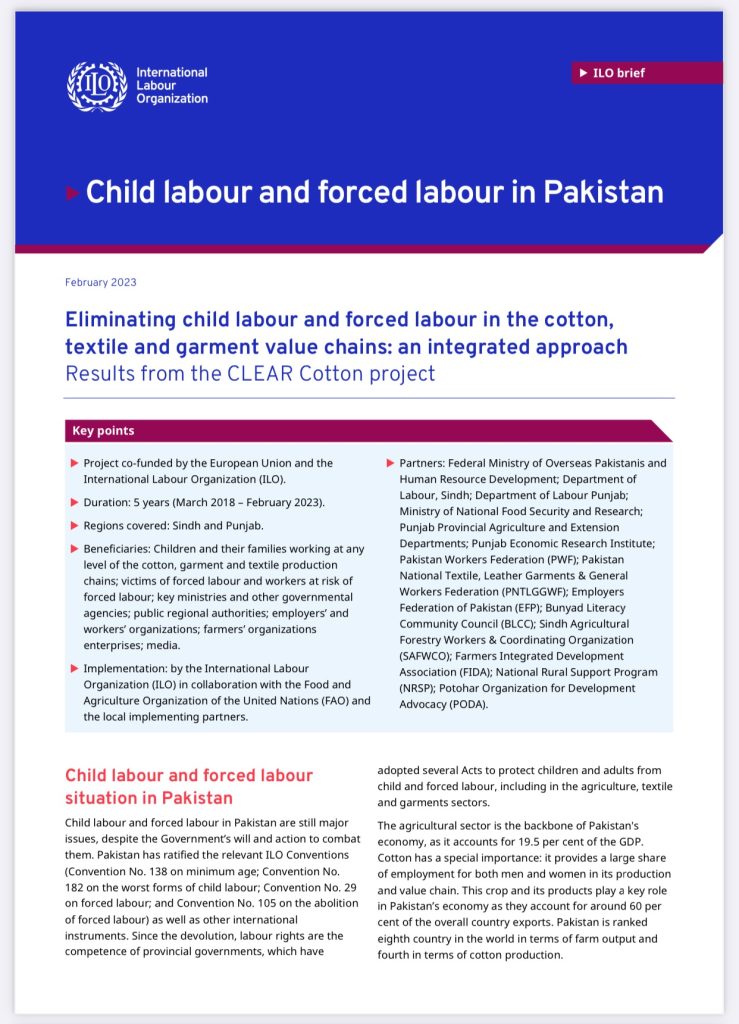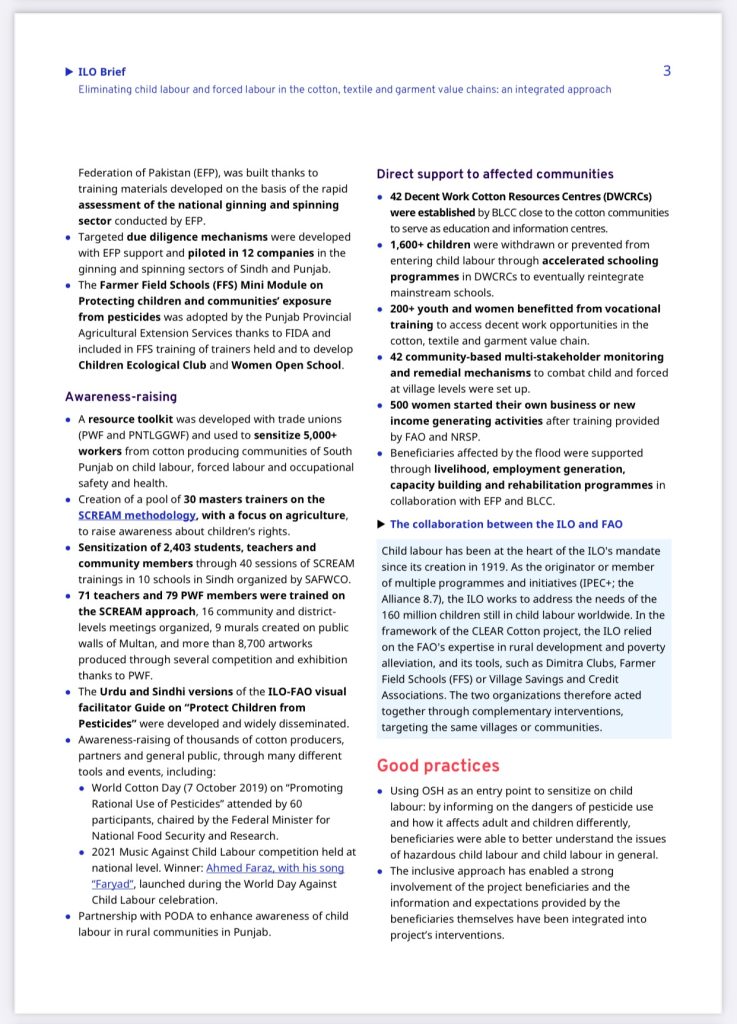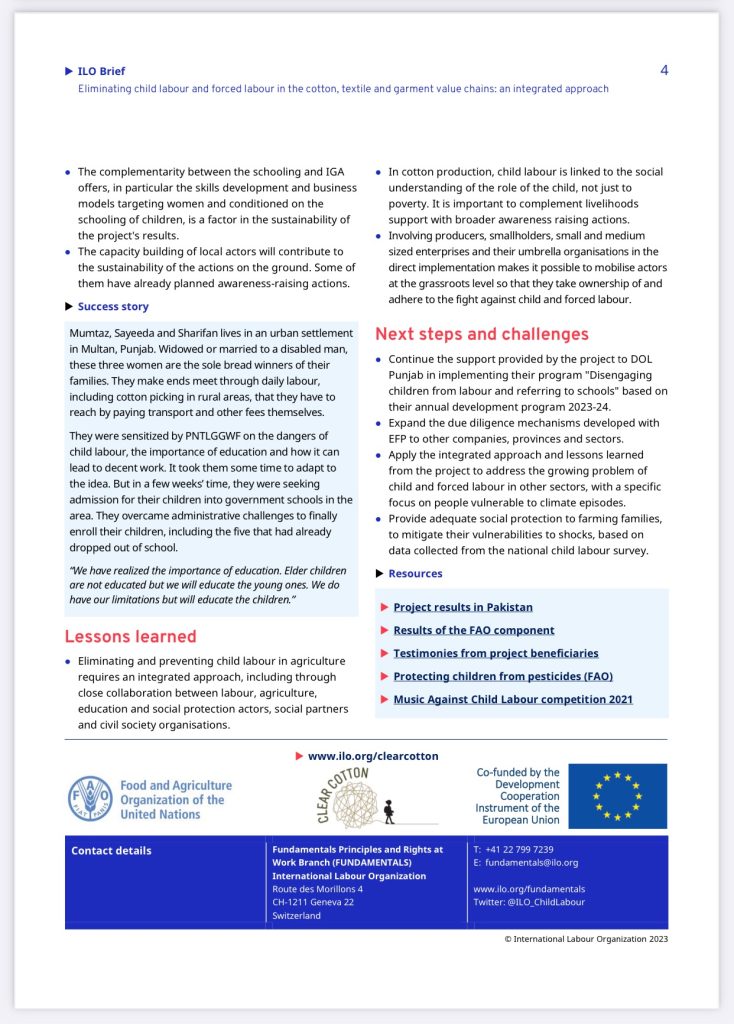
Eliminating child labour and forced labour in the cotton,
textile and garment value chains: an integrated approach
Results from the CLEAR Cotton project
Situation in Pakistan
Child labour and forced labour in Pakistan are still major
issues, despite the Government’s will and action to combat
them. Pakistan has ratified the relevant ILO Conventions
(Convention No. 138 on minimum age; Convention No.
182 on the worst forms of child labour; Convention No. 29
on forced labour; and Convention No. 105 on the abolition
of forced labour) as well as other international
instruments. Since the devolution, labour rights are the
competence of provincial governments, which have
adopted several Acts to protect children and adults from
child and forced labour, including in the agriculture, textile and garments sectors.
The agricultural sector is the backbone of Pakistan’s
economy, as it accounts for 19.5 per cent of the GDP.
Cotton has a special importance: it provides a large share
of employment for both men and women in its production
and value chain. This crop and its products play a key role
in Pakistan’s economy as they account for around 60 per
cent of the overall country exports. Pakistan is ranked
eighth country in the world in terms of farm output and
fourth in terms of cotton production.






Leave a Reply